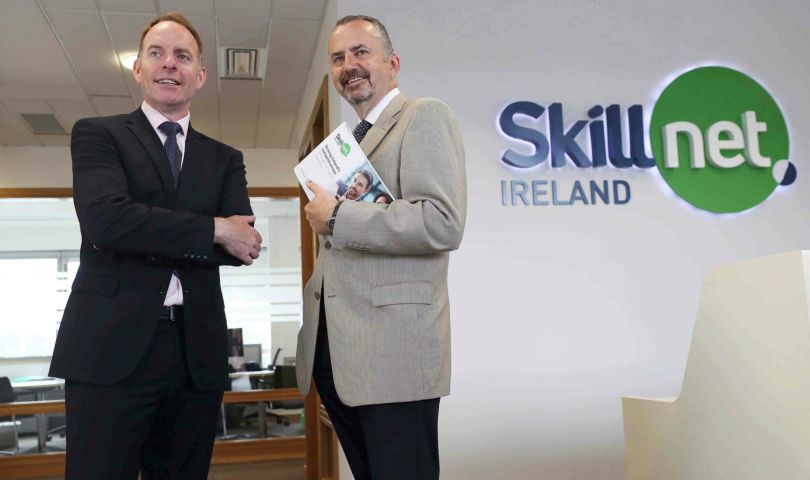Just 6% of Irish SMEs availed of subsidised upskilling and training through Skillnet Ireland in 2017, according to the agency’s annual report.
The state-funded agency promotes and facilitates enterprise training and workforce learning in Ireland. It comprises 60+ learning networks across the country, which are made up of private-sector businesses that collaborate to address skills needs within their sector or region.
Skillnet Ireland’s 2017 annual report notes that while overall uptake of its subsidised training services is low among SMEs, the number of businesses that did access training through Skillnet Ireland networks in 2017 grew by 5%.
The more than 15,000 businesses invested in their staff across a range of sectors (services 40%, agri-business 26%, manufacturing 7%). Some 94% of the Skillnet Ireland member companies were SMEs.
Commenting, Brendan McGinty, chairperson of Skillnet Ireland said that 2017 was a positive year for the agency, before drawing attention to the potential for more SMEs to use its services.
Productivity Gap
“There are an estimated 240,000 active small/micro enterprises in Ireland, employing some 680,000 people. Due to an ever-widening productivity gap between indigenous SMEs and the multinationals based here, Irish SMEs need to pay attention and recognise the value of workforce development,” he continued.
An independent evaluation of Skillnet Ireland funded programmes is also summarised within the agency’s 2017 annual report. It found that 87% of businesses reported that being a member of a Skillnet Ireland network had addressed skills gaps within their organisation.
Furthermore, 73% of businesses reported that Skillnet Ireland training helped improve business processes, productivity and enhanced their competitiveness.
Paul Healy, chief executive of Skillnet Ireland, stressed the importance of upskilling across all sectors. He also urged more companies to engage with subsidised training before Brexit comes into effect.
“Without investing in upskilling and talent strategies, Irish companies could lose their competitive advantage, especially with the challenges posed by Brexit,” Healy maintained.
“Economic studies are already showing that low-skilled workers will be hit hardest when Brexit comes into effect. So, we would encourage employers to start considering ways to protect their business and staff by providing vital training to ensure they can adapt to the challenges presented by Brexit.
“Last year we invested over €30 million in upskilling programmes in conjunction with enterprise. Access to training has never been easier or more affordable for businesses, with over 65 Skillnet Ireland learning networks across a wide range of sectors and regions nationwide.”
Photo: Brendan McGinty (right) and Paul Healy, Skillnet Ireland (Pic: Conor McCabe)











